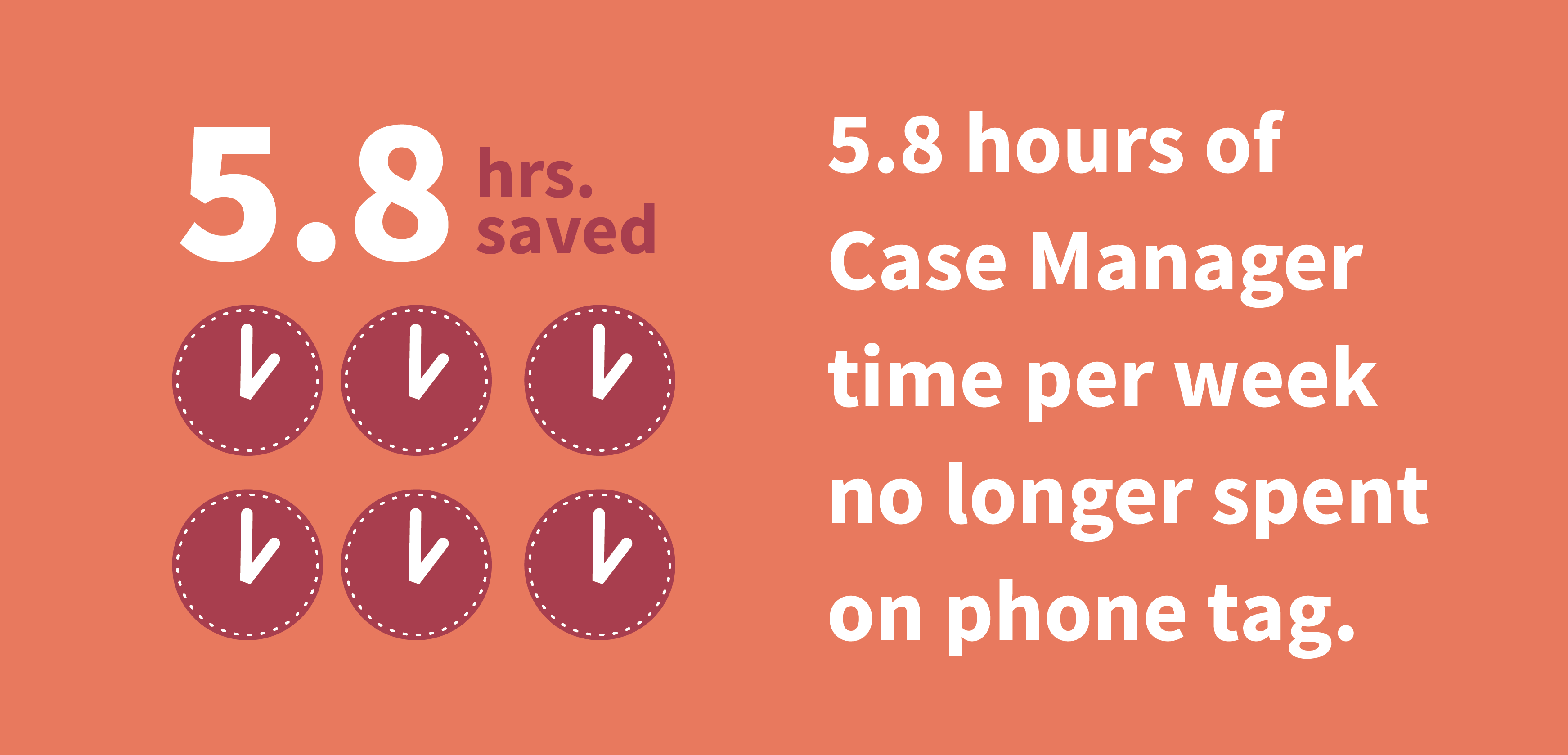
Additional Value-Add Opportunities
In addition to ensuring client success (a symptom of which would include the reduction of the failure-to-appear rate), ClientComm provides a myriad of value add opportunities. Most significantly, ClientComm enables passive communication with clients. Because many clients of Criminal Justice Services lack subscription based cellular contract services, and rather have (often) federally subsidized or personally purchased pay-per-minute devices, voice mail is often an uncertainty. Common issues that plague case managers include voice mail boxes that are not set up or full, or clients who fail to check their voicemail. As a Probation case manager said during an interview, "the phone gets so annoying." She continued, describing ClientComm as "really helpful; it saves you time, saves you from telephone tag."
Another case manager commented similarly on her frustrations with spending substantial amounts of time engaged in "phone tag." She added: "[With ClientComm], we've been discussing more small things [with our clients]. ...I feel like they can just send me a quick update on their lives."
Combined, 51 conversations were held with 29 clients, an average of 1.75 conversations per client. This is slightly below the current average of 2.05 conversations per client that we are observing system-wide as of the start of June. We suspect that this number will rise in the coming weeks as "waves" of newly onboarded clients recently likely skew results toward a lower numerical value than they might indeed be.
In discussions with case managers, we were able to assess that achieving success in phone calls can take wildly disparate amounts of time. As discussed prior, phone tag can be an enormous investment of time. Furthermore, after phone calls, case managers must transcribe the contents of the call into C-Tracks, the legacy case management system employed by Criminal Justice Services. By averaging a sample of assessed time investments over a series of interviews, a rough average of 30 minutes was assessed as being the cumulative time spent from engaging in phone tag, leaving messages, logging attempts in C-Tracks, and finally getting ahold of the individual and speaking with them in detail (all followed by more C-Tracks logging). Because all transcription from ClientComm is a simple cut and paste, we can assume greater than 25 minutes are saved for each conversation that can be moved off of the phone and onto ClientComm.
In addition, as case managers attested to in their interview, they are now able to often help two clients at the same time - one view ClientComm while the other is sitting across the desk from them. Thus, there are additional time savings present there as such an effort would simply have not been possible prior with the required phone and verbal exchange.
Thus, we propose a conservative 30 minute estimate of time savings per conversation that is held over ClientComm rather than over the phone. If we accept this assumption, then the 377 closed messages as of the first week of June amount to 188.5 hours of case manager time has been "saved." Specifically, this is time case managers can spend being more effective and servicing clients directly, rather than be embroiled in simply getting in contact with a single client. If we assume a dollar value of time at $25.00 per hour, we can estimate over $4,700.00 in case manager time saved (or, perhaps, better allocated) thus far. With 187 additional currently open conversations, it is fair to assume that another roughly $2,300.00 in savings is also "underway" for a total of over $7,000.
If we conservatively assume a constant rate of use (even though more case managers have been onboarded recently, thus indicating that use will increase at a more than constant rate due to a larger installed user base), ClientComm could potentially deliver $21,000.00 in case manager time spent making phone calls by the end of this calendar year.
 Salt Lake County & Code for America, 2016 Mid-Year Report
Salt Lake County & Code for America, 2016 Mid-Year Report

